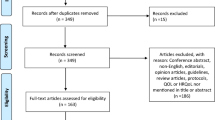Summary
Social valuations for health states are potentially useful both in clinical decision- making and in health-resource allocation, but there is some evidence that the experience of illness may affect such valuations. This article compares valuations of hypothetical health states obtained from a sample of chronically ill patients, with valuations obtained from a sample of relatively healthy individuals. The instrument used to obtain these values was the EuroQOL 5D questionnaire (EQ-5D).
We found that the EQ-5D values of chronically ill patients differed significantly from the values obtained from healthier individuals, particularly in the case of the more severe health states. Healthy individuals assigned negative values to some hypothetical health states, indicating that they consider them to be worse than death, whereas chronically ill patients assigned positive values to all health states.
These results raise difficult questions about whose values should count when health-status measures are incorporated in clinical and economic evaluation, and in particular when deciding upon the allocation of scarce resources.
Similar content being viewed by others
References
Kind P, Gudex CM. Measuring health status in the community: a comparison of methods. J Epidemiol Community Health 1994; 48: 86–91
Patrick DL, Erickson P. Health status and health policy. Oxford: Oxford University Press, 1993: 50
Nord E. Methods for quality adjustment of life years. Soc Sci Med 1992; 34: 559–69
Churchill DN, Torrance GW, Taylor DW, et al. Measurement of quality of life in end-stage renal disease: the time trade-off approach. Clin Invest Med 1987; 10: 14–20
Ashby J, O’Hanlon M, Buxton M. The time trade-off technique: how do the valuations of breast cancer patients compare to those of other groups? Qual Life Res 1994; 3: 257–65
Patrick DL, Starks H, Cain KC, et al. Measuring preferences for health states worse than death. Med Decis Making 1994; 14: 9–18
Brooks R,EuroQol Group. EuroQol: the current state of play. Health Policy 1996; 37: 53–72
Kind P, Dolan P. The effect of past and present illness experience on the valuations of health states. Med Care 1995; 33 Suppl. 4: AS255–63
Selai C, Rosser R. Eliciting EuroQol descriptive data and utility scale values from inpatients. Pharmacoeconomics 1995; 8 (2): 147–158
Hurst NP, Jobanputra P, Hunter M, et al. Validity of EuroQol — a generic health status instrument — in patients with rheumatoid arthritis. Br J Rheumatol 1994; 33: 655–62
Badia X, Fernández E, Segura A. Influence of sociodemographic and health status variables on evaluation of health states in a Spanish population. Eur J Public Health 1995; 5: 87–93
Armitage B. Statistical methods in medical research. 2nd ed. Oxford: Blackwell Scientific Publications, 1987: 7
Cohen J. Statistical power analyses for the behavioural sciences. 2nd ed. Hillsdale (NJ): Lawrence Erlbaum Associates, 1988
Balaban DJ, Sagi PC, Goldfarb NI, et al. Weights for scoring the quality of well being instrument among rheumatoid arthritics: a comparison to general population weights. Med Care 1986; 973–80
Patrick DL, Erickson P. Health status and health policy. Oxford: Oxford University Press, 1993: 360–5
Nord E, Badia X, Rué M, et al. Hypothetical valuations of health states versus patients’ self-ratings. In: Badia X, Herdman M, Segura A, editors. 1995 EuroQol plenary meeting discussion papers. Barcelona: Institut Universitari de Salut Pública de Catalunya, 1996: 99–112
Dolan P, Kind P. Inconsistency and health state valuations. Soc Sci Med 1996; 4: 609–15
Gudex C, Dolan P, Kind P, et al. Health state valuations from the general public using the visual analogue scale. Qual Life Res 1996; 6: 521–31
Author information
Authors and Affiliations
Corresponding author
Rights and permissions
About this article
Cite this article
Badia, X., Herdman, M. & Kind, P. The Influence of Ill-Health Experience on the Valuation of Health. Pharmacoeconomics 13, 687–696 (1998). https://doi.org/10.2165/00019053-199813060-00005
Published:
Issue Date:
DOI: https://doi.org/10.2165/00019053-199813060-00005



